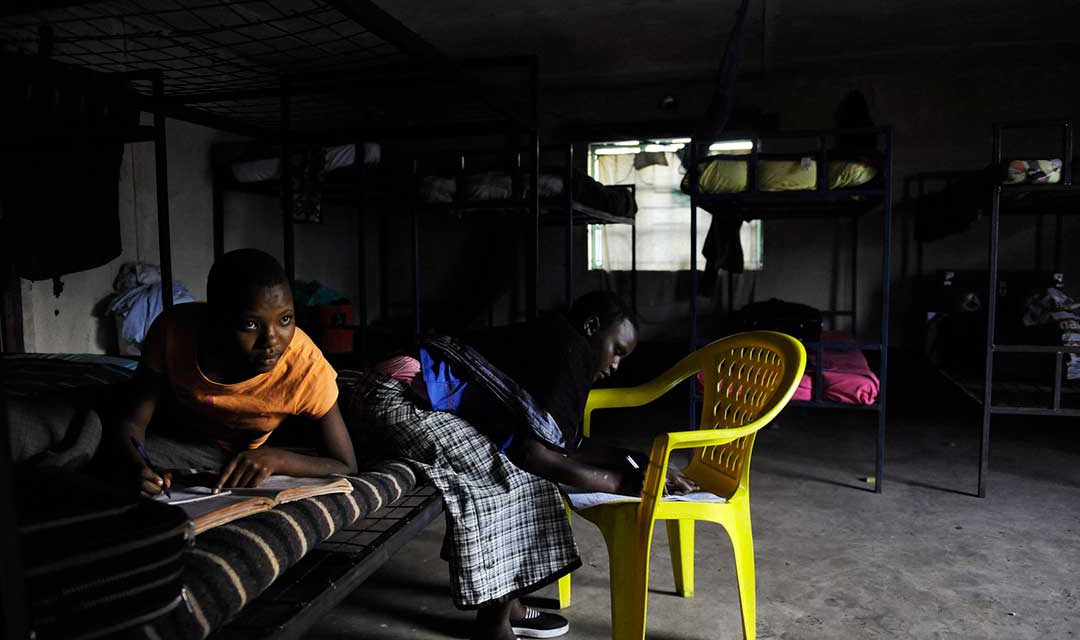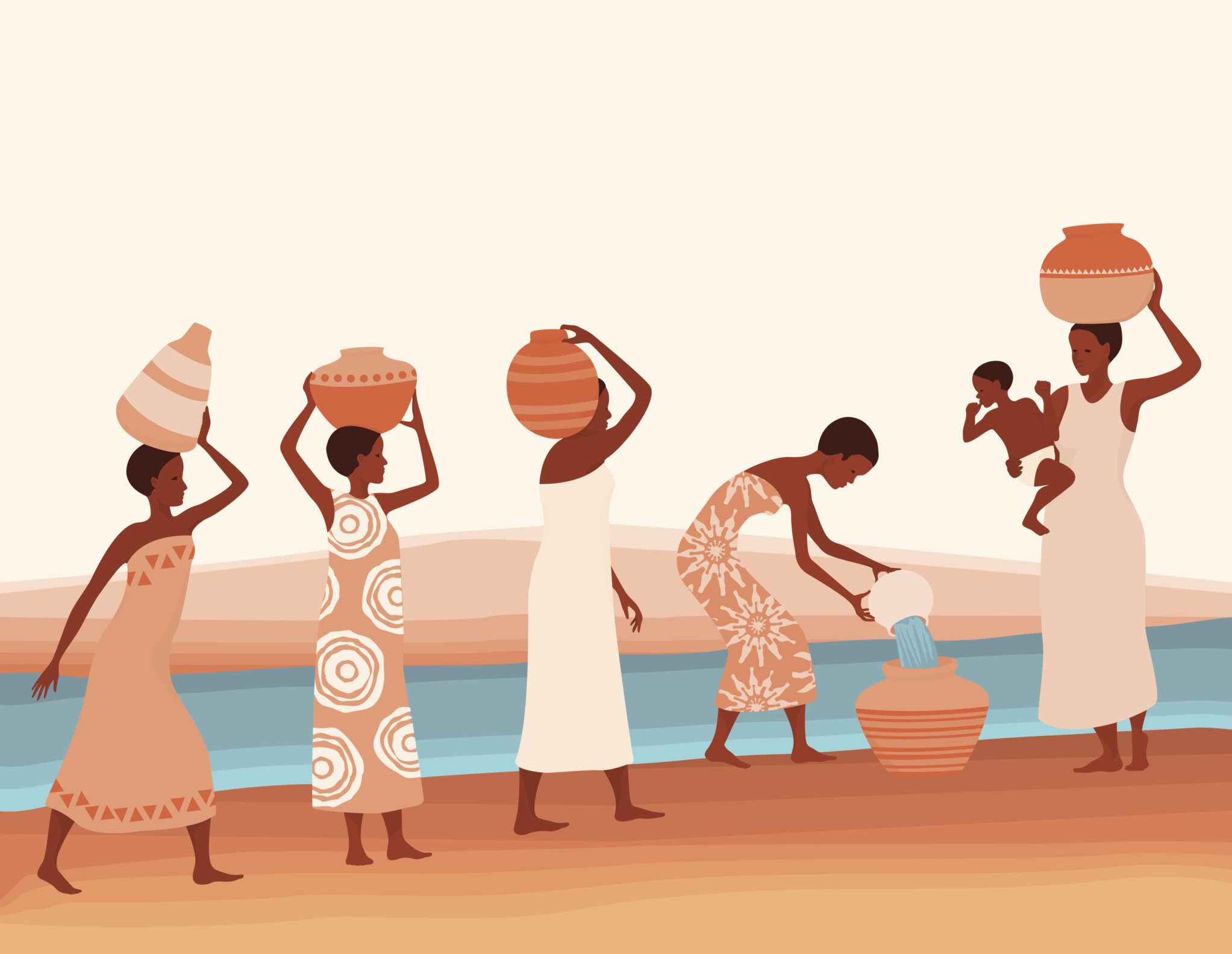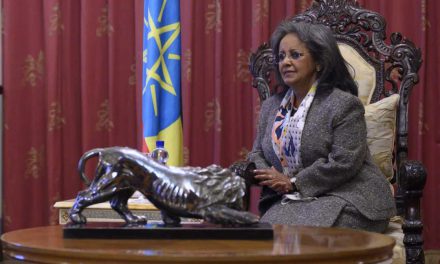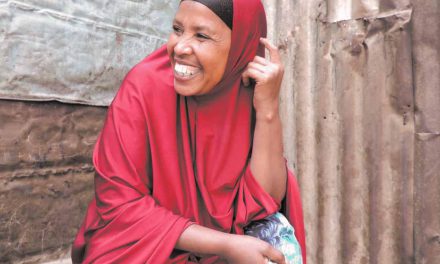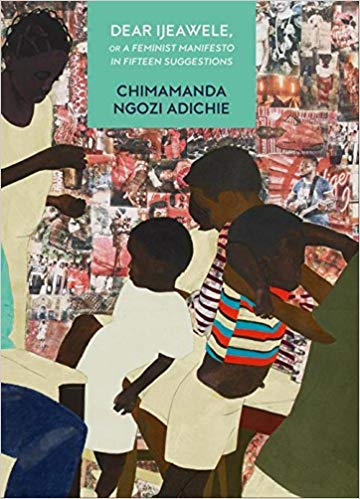How a chief in Malawi is changing hearts and minds about the damaging practice of early marriage
Chief Theresa Kachindamoto’s office is decorated with certificates for awards she has received locally in Malawi and internationally. A large, colourful portrait of her hangs on one wall in her office, while on another wall, just behind her seat, hangs a 2016-calendar with another picture of her. Shining trophies rest on the office shelves; the walls are covered with pictures documenting her journey, her work and her achievements.
Internationally recognised for her work in preventing and overturning child marriages, the pictures are illustrative of more than a decade of campaigning. She has been to New York three times, and she has met ambassadors, presidents and other dignitaries. But the best day of her life, she says, was when a group of children came to thank her, in August 2017, for rescuing them from early marriages.
“I sat under a tree and about 55 girls and 40 boys came, sat down and thanked me for what I had done for them, because they’d never dreamed that they would go back to school,” Chief Kachindamoto told Africa in Fact.
It has been 15 years since Chief Kachindamoto was installed as the tribal ruler of Dedza district in central Malawi. Initially, she resisted calls to be made chief after her elder brother died, but she realised it was her duty and agreed. The mother of five boys, she had spent 27 years working as a secretary at a theological college in Zomba, Malawi’s pre-independence capital. She returned home to a hero’s welcome, and was installed as chief on 23 December, 2003.
She was on her way to a meeting with family elders the following February when she met a 13-year-old girl struggling to calm a crying baby. She asked the girl to take the baby to the mother and was shocked when the girl said the baby was hers; a 14-year-old boy standing nearby was the father.
The chief raised the issue at the elders meeting and was told child marriages were common in the area. She decided she could not be leader of a million households in her district when half of them were made of child couples. Although the Malawi Constitution defines all people under 18 as children, child marriages are common in the country. According to the 2015 – 2016 Malawi Demographic and Health Survey, conducted by the National Statistical Office (NSO), some 42% of women aged between 20 and 24 were married by the age of 18.
Chief Kachindamoto decided to stop early marriages and to help her she engaged with 51 sub-chiefs, faith leaders, the district commissioner, the local magistrate, the police officer-in-charge as well as civil society groups operating in her area. Thanks to her efforts, the chiefs and the 551 villages in her district signed a memorandum of understanding agreeing to end harmful cultural practices and child marriages. Despite this agreement, however, the practice continued.
In 2006, Kachindamoto realised she needed to change her approach. She spent five months visiting her villages, sensitising chiefs, parents and children to her vision. She called another meeting with the community leaders at which they drafted a set of by-laws for the area. They also established a mother’s group, women in the villages of the area, to assist with identifying and investigating cases of child marriage.
Esther Mtandasha is the chairperson of the Mother’s Group. She calls her team “soldiers” or “hunting dogs” whose role it is to also help to sensitise parents on the importance of education and facilitate the return of the girls and boys to school. The Mothers also farm maize and rice to generate income to support the children.
Kachindamoto’s efforts to prevent and annul child marriages still faced resistance; she discovered some chiefs under her jurisdiction had forced pastors to officiate weddings involving children. To show her people she meant business, she fired the five chiefs involved, although they were later reinstated after they apologised and Kachindamoto had verified they were no longer conducting early marriages.
There have been death threats and accusations that she is destroying a traditional way of life, but Kachindamoto’s work thus far has seen tangible improvements in the lives of children in her area. Since 2004, she has terminated 3,441 marriages and the children involved were told to return to school, many of who have done well. Seven students, three girls and four boys, have been selected for tertiary education. In Malawi and abroad, Kachindamoto’s name is synonymous with ending child marriages.
Emilda Jemita, 18, is one of the girls who has benefited from Kachindamoto’s efforts. She was forced to marry a 23-year-old man at the age of 14 and they stayed together for two months. During that time, the husband would leave Jemita without money and go drinking, but expect to find food on his return. When Jemita failed to provide food, he would beat her. When the chief heard about the marriage, she intervened and, after sensitising the parents, terminated the union. Jemita returned to school and the aspiring nurse is now in form three. “If the senior chief was not there, my life would have been difficult forever,” Jemita says. “Marrying young is trouble.”
For her efforts, Kachindamoto has won international recognition for her work, but her district has benefited, too. Her area now has four schools where it once had one, and driving to her home the construction going on is noticeable. She emphasises, though, that her campaign for young people would not have been possible without the support of mothers’ groups and community police, who work on a voluntary basis.
Kachindamoto’s fight against child marriage is backed by Malawi law, particularly the Marriage Act of 2015, which raised the minimum marriage age from 15 to 18. According to Kumvana Mlumbe, a legal officer at a women’s rights organisation, the Women’s Legal Resource Centre (Wolrec), two other laws include provisions that prohibit early marriages.
Section 81 of the Child Care, Protection and Justice Act states that “no person shall force a child into marriage or force a child to be betrothed”, while section 80 states that “no person shall subject a child to a social or customary practice that is harmful to the health or general development of the child”. The Act further states in Section 82(a) that, “no person shall use a child as a pledge to obtain credit”. Anyone who contravenes these sections “commits an offence and shall be liable to imprisonment for 10 years”. Moreover, the penal code criminalises sex with children. Section 138 states that “a person who unlawfully and carnally knows a girl under the age of 16 shall be guilty of a felony and shall be liable to imprisonment for life”.
Most people are aware of these laws and the consequences of breaking them, Mlumbe says. “There is a change; people are aware that they are breaking the law. There is much greater knowledge in most districts than before.” She told Africa in Fact that Wolrec and other organisations were working on a review to have the age in the Penal Code raised from 16 to 18 to be in line with the definition of a child as stated in the Constitution.
Juliana Lunguzi, a member of parliament (MP) for the area, says Kachindamoto’s work has had a positive impact on her district. “There are girls who are able to go back to school and organisations are coming in [to help]. Some are building hostels to cater for girls who have come from further afield, while other have provided things like bedding.”
Lunguzi says that while many child marriages have been terminated, the practice continues and she believes there is a need for a holistic approach to completely eradicate it. Parents, she says, must learn to value education and the students need to appreciate why they are being advised not rush into marriage. Lunguzi suggests early childhood development and adult literacy education could help. In fact, the difficulties that Kachindamoto has faced in trying to convince parents to allow their children to continue with their studies until at least the age of 18 has prompted her to approach the Malawi parliament to change the minimum marriage age from 18 to 21. Meanwhile, many of the students she rescued have finished secondary school.
Kachindamoto recalls a day in November 2017 as the worst of her life, when parents abandoned about 400 girls and 44 boys at her house. “They said, ‘Chief, you have wasted our time; four years (at secondary school) without anything. For those four years, we would have had four grandchildren. Look at these stupid boys and girls. They are educated like you said. Now what? They are still at home. We are still feeding them, together with their children. What is the benefit of education?’”
And that issue continues to be her main challenge; children who have finished secondary school find themselves idle because there is little work available. “Their parents mock them,” she says. To support her pro-schooling campaign, she now feels that additional measures will be necessary, such as more opportunities to enter tertiary education and more support for young people in creating their own businesses.
For many years, the chief has relied on donor support to pay the school fees of children she has rescued from early marriages; some of it has come from individuals and the rest from organisations, embassies and UN agencies. She has even paid fees herself. It was a relief for her when in September 2018 the Malawi government abolished tuition fees in all secondary schools. Despite this, Kachindamoto still owes four secondary schools K1.876 million (about $2,600) in school fees.
Now, Kachindamoto’s fight to end child marriages is spreading far beyond her district. She has been to several other Malawi districts, as well as other countries, including Lesotho, Mozambique, Swaziland, Uganda and Zambia, on missions to teach other traditional leaders about her campaigns.
SINTHA CHIUMIA is a journalist from Malawi but currently based in South Africa. Previously, she worked for the first fact-checking organisation on the continent, Africa Check and for private media house Blantyre Newspapers Limited. She holds a Master of Arts in journalism from Wits University, a postgraduate diploma in media management from Rhodes University and a Bachelor of Arts in journalism from the University of Malawi.

